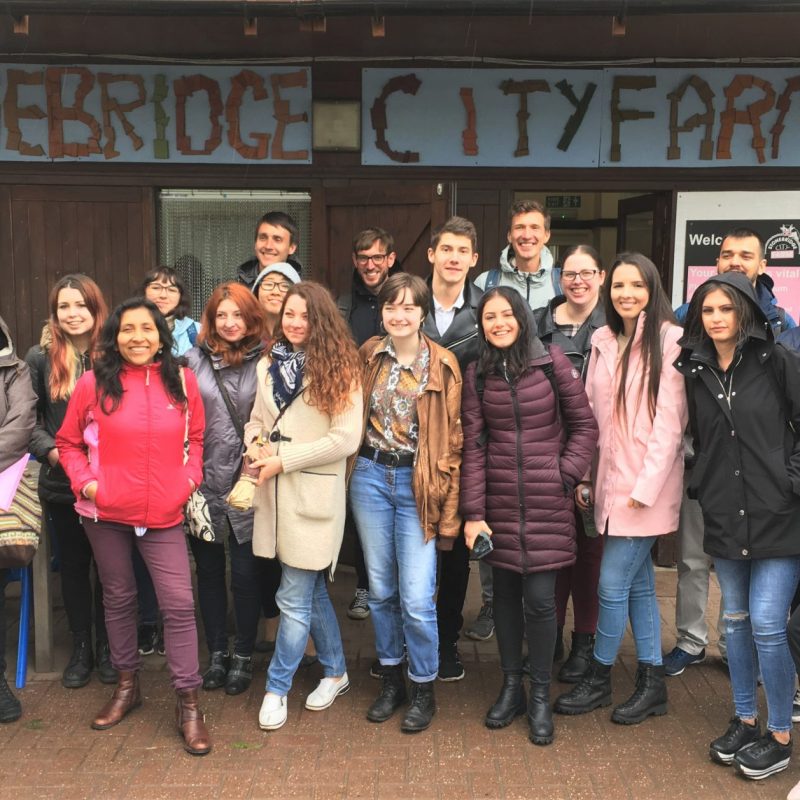Old content
This post is over 3 years old. Some of the content might be out of date. If your after something more up date, check out our latest posts. If you want to find out more about the content on this page, contact us.
In the spring, City Arts held the second half of our Heritage Hunters exchange project. Twenty-eight ‘youth leaders’, from across Europe, came together for a week-long seminar in Nottingham.
The group included people from the Denmark, Armenia, Romania, Turkey, Moldova, Azerbaijan, Ukraine and the UK.
The aim of the seminar was to learn about and discuss way of promote cultural heritage to young people, particularly using innovative artistic activities.
During the seminar the participants had the opportunity to explore Nottingham City by visiting different cultural and heritage venues including Stonebridge City Farm, Green’s Mill and Science Centre, William Booth Birthplace Museum, Backlit Gallery and Studios, New Art Exchange, Nottingham Contemporary, the Malt Cross, Bromley House Library and the Lace Market.
The participants took part in the Nottingham Poetry Festival. They attend the Young Producers WORD PLAY event, and shared poetry at an intercultural exchange the following evening.
The week also included discussions and explorations around best practice and engagement of young people in arts, culture and heritage. We had speakers from Nottingham UNESCO City of Literature, Nottingham Contemporary, Nottingham Castle and Museum, Nottingham Lakeside Arts and Junction Arts.
The second half of the seminar focused on developing different non-formal methods to ‘promote the preservation of cultural heritage amongst youth through artistic expression’. This concluded with the group exploring organisational strategies and policy development, and discussing methods of project management and project design.
What we learned
Here are the thoughts from Alma, Amelia, Joe, Kate, Mary and Nicole, the UK delegates who took part in the seminar:
OUR OWN CULTURE
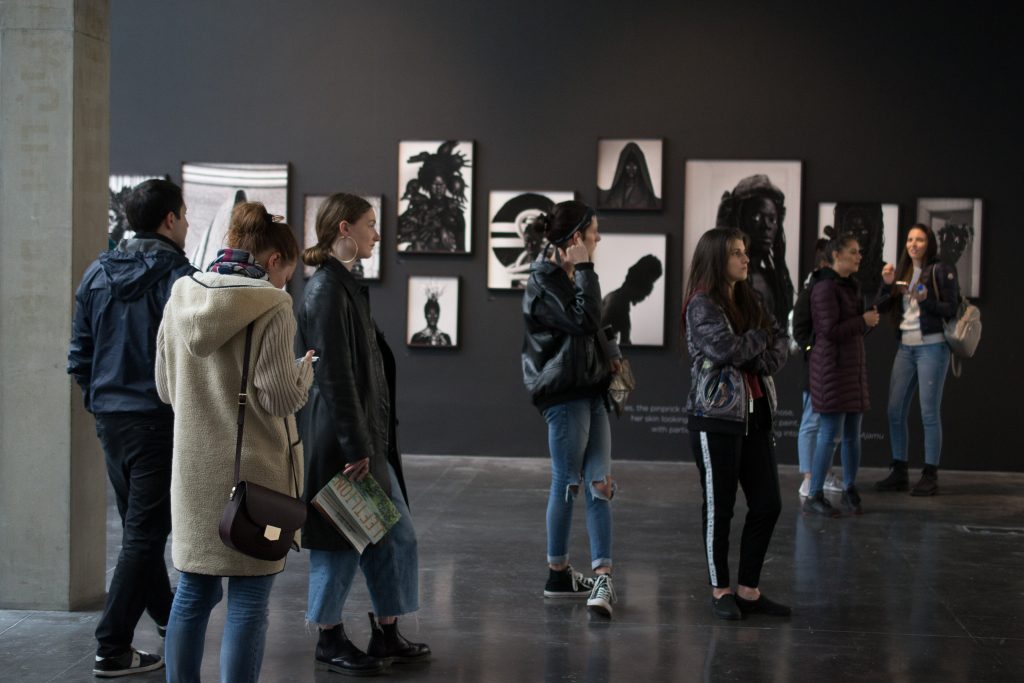
Sometimes we forget that the places we live in have cultural and heritage sites that we can visit. Sometimes we take them for granted. Living in the city of Nottingham, with such rich connections to the past, is no exception. The seminar had some unexpected surprises for even the local youth leaders taking part.
“I really enjoyed visiting places in Nottingham and learning more about my own local culture and history, and knowing more about the places I pass by frequently but have never really appreciated until now.”
“I learnt a lot about my own local culture and heritage, and it was nice to take the time to explore this history and visit all the things I’ve been meaning visit.”
“I am an avid visitor to museums, heritage sites and arts venues around Nottingham and the East Midlands however during this trip we visited several heritage sites and fun venues that I didn’t even know existed. I thought I knew everything about Nottingham but it turns out there was still more to unlock about Nottingham than I’d already explored.”
THINGS THAT CONNECTS US
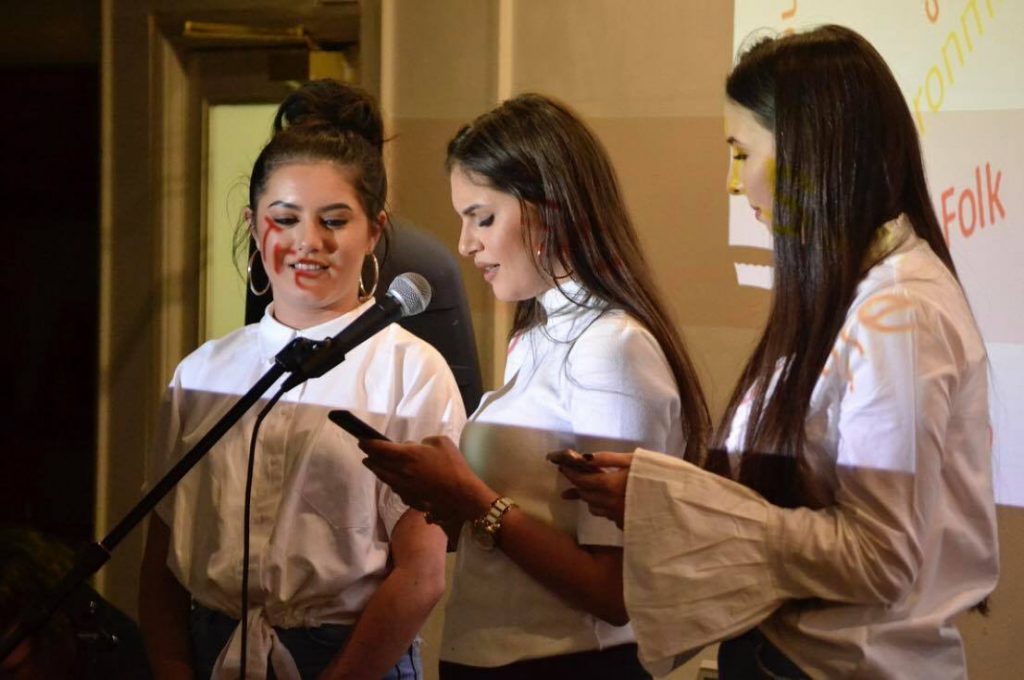
The experiences we share with others shape our view of the world around us. It is important to connect, understand and appreciate each other’s culture.
“I enjoyed the group work activities and getting to know a diverse range of people, through social evenings and meals together.”
“I learnt a lot about other cultures, and both the similarities as well as differences between us through exchanges of knowledge and activities.”
“…many of the Eastern European countries are more in connection with their own cultural traditions and heritage and know more about each other. Britain seems much more disconnected from our own heritage and also we haven’t been taught much about the countries that visited us before. “
“The intercultural poetry evening, as well as our ‘Word Play’ event, were huge highlights for me. I got to learn what other countries ate and drank, experience their heritage through language and storytelling via hearing their poems and translations…”
“I also learnt so much about other countries cultures and experiences from chatting to the other youth workers but also through our events.”
“I enjoyed the exchange of culture and ideas- I love being able to meet like-minded people from around the world.”
SHARING KNOWLEDGE
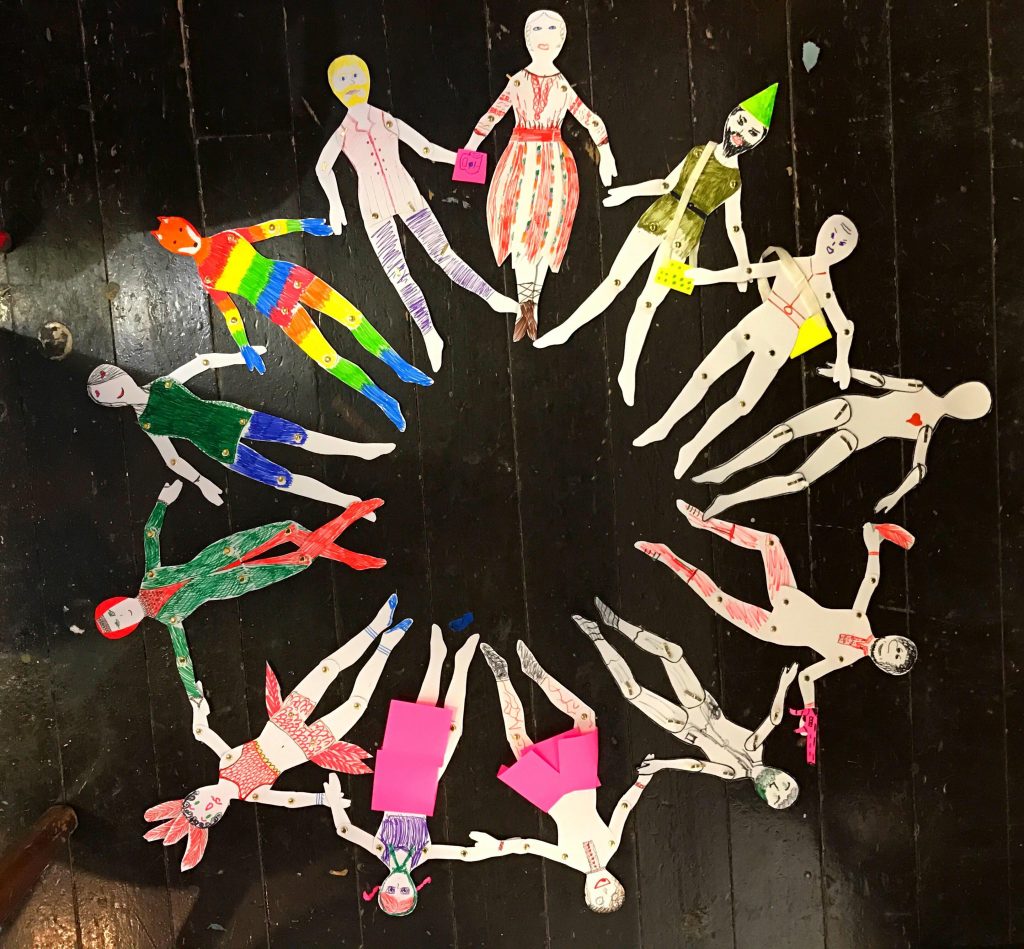
It is important to be an active learner and share our knowledge with others. This helps us understand our own work and develop it further.
“I began feeling unsure of exactly what, if anything, heritage means to me, but from this experience, heritage has become more closely linked to my identity and now I see it as an important part of my life. I hope that I can help other members of the group to explore and connect with heritage through directly linked artistic projects as well as simple tools such as conversation and curiosity.”
“I learnt several new ways of running workshops and about the significance of cultural heritage to education in other countries.”
“I learnt things that will undoubtedly benefit my career such as how other organisations work and how to make policies.”
PROMOTING ARTS, CULTURE AND HERITAGE TO YOUNG PEOPLE
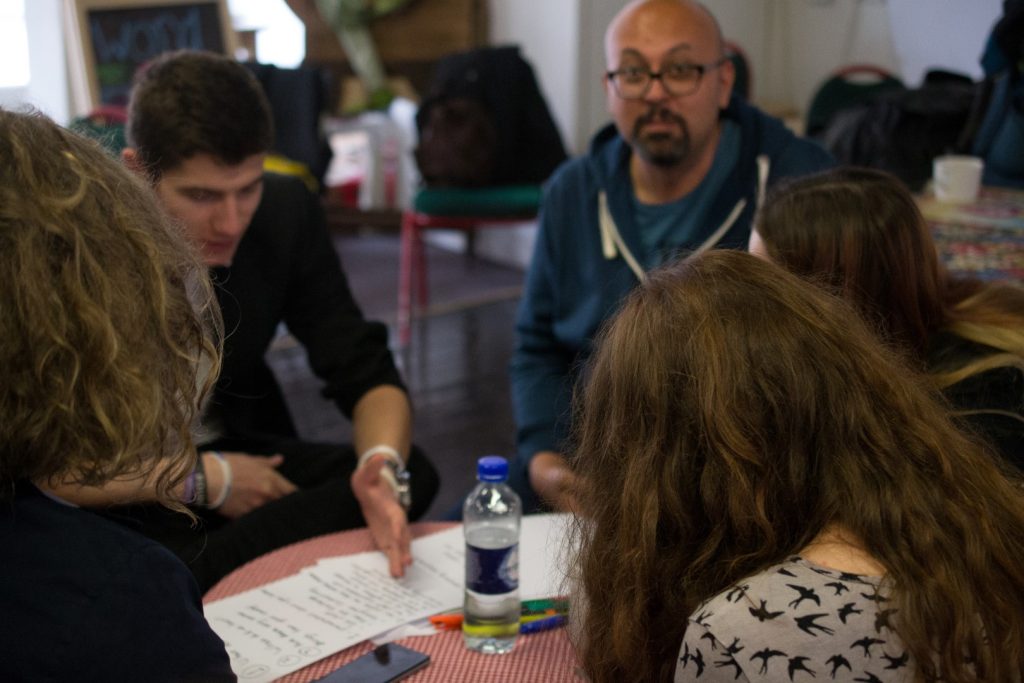
We reflected on one of the questions posed by Meridith from the Study Visit to Moldova: ‘what do we engage with from our own heritage, and how does it inspire us to help other young people explore what heritage means to them?’
“I enjoyed the sessions where we got to be creative. We got to come up with our own ideas, test them out and develop them. I find I engage with the weird bits of history, like funny stories or urban legends that have been created and passed down, weird things that people did in the past that would seem odd now. Interesting events that happened that affected our daily lives and local environment. I loved hearing these things during the seminar and retelling these stories to my peers. Based on these, I a storytelling-illustration fusion workshop where we can tell/draw each other stories we have heard.”
“The work the Young Producers does massively links into my love of heritage. The answer to how to help young people explore what heritage means to them is to run more community arts and youth-led workshops and projects around the themes of heritage in ways that are interesting and engaging for young people. It needs to be interactive, creative, inspiring; the opposite of national curriculum, research-led or lecture-led education. Arts and fun methods are a great way to do this. Much like our trip to the Malt Cross, there are lots of inspiring, fun and engaging ways to truly capture an audience and increase interest in heritage amongst young people through performance, language and storytelling. Equally, Museums, Heritage Sites, Collections and Object handling can all be used in innovative and creative ways to make heritage appeal to younger people. Interactive, immersive and fun techniques in museums such as digital apps, sensory experiences and costumed interpreters can help do this too.”
What happened next
Overall, fifty-seven people from eight countries took part in Heritage Hunters, split across the Moldova Study Visit and the seminar in Nottingham.
The participants contributed to a document that we hope will help other youth leaders to engage young people in art, culture and heritage. Download it here:
A youth leader from Turkey has been able to implement some of the learning from the seminar into his work.
“We were planning a City Tour event for high school teachers who are living in different parts of the country. After I explained what we had done in Nottingham: what our aims were and why we were trying to preserve cultural heritage, we decided to modify the tour by creating a local cultural treasure hunt.
We set up two different routes and 38 different missions (within 3 categories; physical development, skills development and social responsibility). The high school teachers tried to finish the route that they were doing by completing the missions one by one.
Teachers enjoyed the event, especially because of the cultural parts they experienced. All in all, it was nice to add some cultural flavour to the things that we have to do. The next step is to create new projects that reach younger generations. We have already started the development phase!”
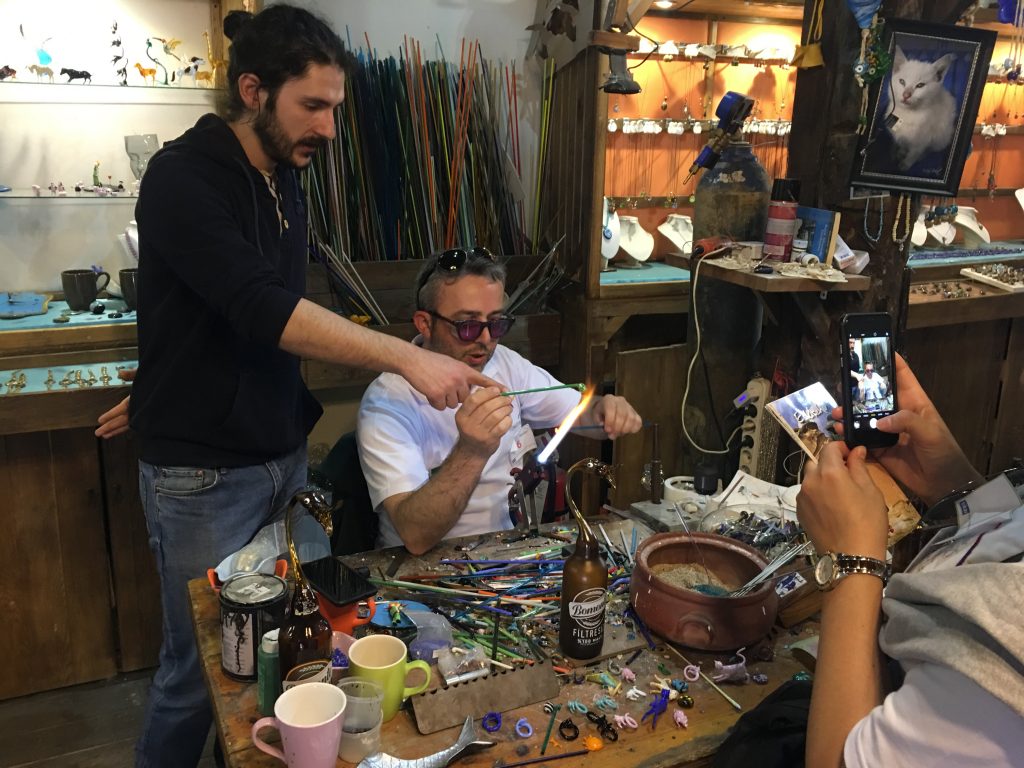
The project was also shared at a UNESCO conference in Krakow by our partner Nottingham UNESCO City of Literature
Thank you
We would like to thank the following people who helped us make sure that the Seminar in Nottingham was a success: Daniel Shillcock and Emese Laszio – InterStep; Suzanna Bedford – The Place; Ryan Ashby – Stonebridge City Farm; Jamie Duff and team – Green’s Windmill & Science Centre; Julie Obermeyer – William Booth Birthplace Museum; Matthew Chesney and Suzanne Golden – Backlit; The Angel Microbrewery; New Art Exchange; Nottingham Contemporary; Nottingham Tram Network; Sandeep Mahal – Nottingham UNESCO City of Literature; Ruth Lewis-Jones – Nottingham Lakeside Arts; Kay Hardiman – Nottingham Contemporary; Rosny Hayward – Nottingham Castle and Museum; Jane Wellls – Junction Arts; Ade Andrews – ‘Robin Hood’ Lace Market Tour; Milly Fry and team – Malt Cross; Melanie Jeffs – Bromley House; Corfu’d; Desi Downtown; Young Producers; Nottingham Poetry Festival; and all the organisations and participants from the European countries taking part.
